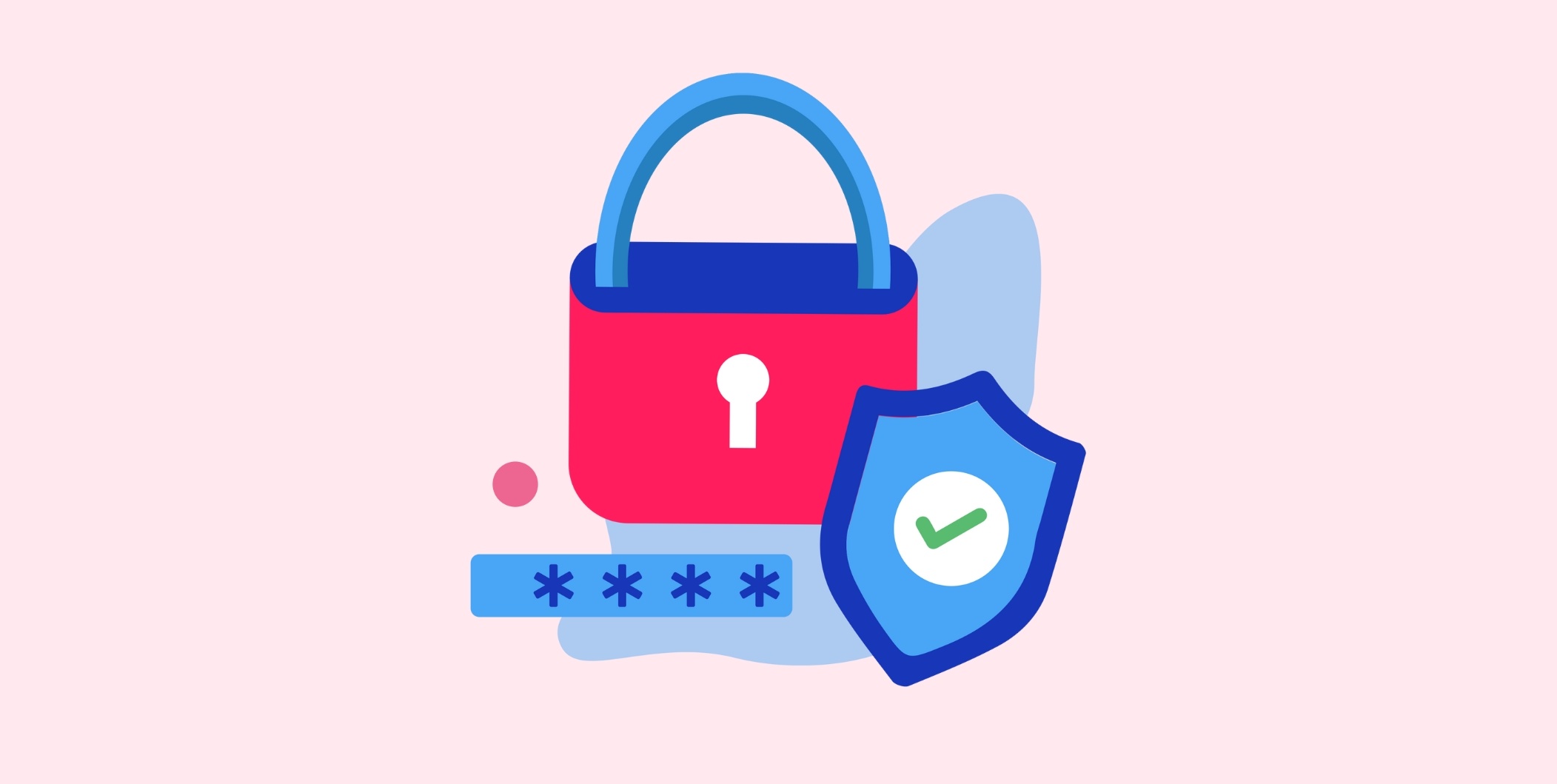Nov 5, 2025
The Ultimate Guide To HIPAA Compliance
May 21, 2024 - Blog
Navigating the complexities of HIPAA compliance can be daunting for healthcare providers and health plans, let alone small businesses handling protected health information (PHI). Understanding and implementing the necessary privacy and security measures is not just about legal compliance; it’s about safeguarding your patient’s trust.
In this comprehensive guide, we break down the critical components of HIPAA, providing you with the tools and knowledge needed to ensure your organization adheres to these stringent regulations. We cover everything from the basics of the Privacy Rule to the specifics of the Security Rule and the intricacies of the Breach Notification Rule.
We aim to simplify the legalese and technical jargon into practical steps that can be applied to improve your operations and maintain compliance. This guide is your one-stop resource for all things HIPAA, designed to navigate the often murky waters of compliance with clarity and confidence.
What is HIPAA compliance?
HIPAA compliance means adhering to the standards set by the 1996 Health Insurance Portability and Accountability Act (HIPAA), which was established to protect sensitive patient health information from being disclosed without the patient's consent or knowledge.
Compliance involves following the rules outlined in the HIPAA Privacy, Security, and Breach Notification Rule. For healthcare providers, health plans, healthcare clearinghouses, and business associates of these entities, this means implementing administrative, physical, and technical safeguards to ensure the confidentiality, integrity, and security of protected health information (PHI).
Related article: 3 Best Practices for Virtual Care
These measures protect patient data and help foster trust between patients and healthcare providers. Additionally, HIPAA compliance includes training employees on how to handle PHI properly and what to do during a data breach.
Who needs to be HIPAA compliant?
Any organization or individual who handles health information as part of their operational duties must be HIPAA compliant. This includes covered entities like doctors, clinics, psychologists, dentists, chiropractors, nursing homes, pharmacies, and mobile caregivers.
Health plans, health insurance companies, HMOs, company health plans, and certain government programs that pay for healthcare, such as Medicare and Medicaid, must comply with HIPAA regulations.
Business associates—entities that perform services for a covered entity that involve the use or disclosure of PHI—also must comply. These include lawyers, IT providers, billing and coding services, and even document shredding companies.
Ensuring compliance across these various groups protects sensitive health information and upholds the integrity of the healthcare system.
What are the three main rules of HIPAA?
The three main rules of HIPAA are the Privacy Rule, the Security Rule, and the Breach Notification Rule. The Privacy Rule protects individuals' medical records and other personal health information. The Security Rule ensures the safety of this information when it's held or transmitted electronically. The Breach Notification Rule requires healthcare providers and their business associates to notify patients if their private health information is breached.
Together, these rules ensure the protection and confidentiality of patient data in the healthcare system.
1. The Privacy Rule
The HIPAA Privacy Rule safeguards all health information that can identify an individual, whether it's stored electronically, on paper, or spoken. It protects details about a person’s health, the health care they receive, and their payment for health care.
The rule limits who can access this information and under what circumstances, ensuring that patient consent is needed for most disclosures. It also grants patients the right to access their health records and request necessary corrections.
2. The Security Rule
The HIPAA Security Rule specifically protects electronic health information. Healthcare providers and business associates must secure this information using physical, administrative, and technical defenses.
The rule is designed to be flexible, allowing different organizations to apply the safeguards that best suit their needs based on their size and the type of information they handle.
3. The Breach Notification Rule
The Breach Notification Rule mandates that healthcare providers and their business associates inform patients quickly if their unsecured health information is breached. Notifications must be made within 60 days of discovering the breach.
If the breach affects more than 500 people, it must also be reported to the media and the U.S. Department of Health and Human Services. This rule ensures that patients are aware of breaches so they can take steps to protect themselves.
What is considered a HIPAA breach?
A HIPAA breach is defined as an impermissible use or disclosure under the Privacy Rule that compromises the security or privacy of protected health information (PHI). Such breaches typically involve the unauthorized sharing, loss, or theft of PHI, posing a significant risk of financial, reputational, or other harm to the affected individual.
A breach can range from a lost laptop containing unencrypted PHI to an employee viewing patient information without a valid reason.
Related article: Is WhatsApp HIPAA-compliant?
What are the penalties for failing to comply with HIPAA regulations?
The penalties for failing to comply with HIPAA regulations can be severe, ranging from monetary fines to criminal charges, depending on the seriousness of the breach and the negligence involved.
Fines can reach $50,000 per violation, with a maximum of $1.5 million per year for violations of the same provision. More severe consequences, including jail time, can occur if the violation involves willful neglect or intent to sell, transfer, or use PHI for commercial advantage, personal gain, or malicious harm.
What to do if you violated HIPAA
If you violated HIPAA, it’s important to act quickly to address the situation. The first step is to immediately secure the PHI to prevent further unauthorized access or disclosure. Then, conduct a thorough investigation to understand the extent of the breach and notify the affected individuals as required by the Breach Notification Rule.
If the breach affects more than 500 individuals, it's also crucial to notify the Department of Health and Human Services (HHS) and possibly the media. Documenting your response and any corrective actions taken is essential for demonstrating compliance efforts should an audit occur.
What happens if you violate HIPAA accidentally?
Accidentally violating HIPAA, such as through employee error or oversight, is still taken seriously, but the penalties may be less severe if proactive steps are taken to mitigate the breach.
Once an accidental breach is discovered, it should be reported to the appropriate officials within your organization immediately. The breach must still be assessed for potential harm to affected individuals, and notifications must be made accordingly.
Implementing additional training and modifying policies and procedures can help prevent future incidents and demonstrate a commitment to compliance, potentially reducing the likelihood of punitive penalties.
How to become HIPAA compliant in 7 steps
1. Understanding HIPAA requirements
Understanding HIPAA requirements is the first step in compliance. Learn about the Privacy, Security, and Breach Notification Rules to guide how your organization handles PHI. Knowing these rules helps you comply with legal standards and effectively protect patient information.
2. Conduct a risk assessment
A risk assessment is crucial for HIPAA compliance. Identify where PHI is stored, accessed, and transmitted in your organization. Assess vulnerabilities and potential threats to the security and privacy of PHI. This assessment helps identify necessary security controls and is foundational for compliance efforts.
3. Develop and implement policies and procedures
Developing and implementing detailed policies and procedures based on your risk assessment is essential. These should cover how PHI is managed, accessed, and protected. Proper documentation is a HIPAA requirement and a practical tool for maintaining compliance.
4. Train employees
Employee training is critical for HIPAA compliance. Educate your team about HIPAA rules and your organization's policies on protecting PHI. Regular training updates are important for new staff and to refresh existing employees on compliance and procedural changes.
5. Secure patient information
Implement physical, administrative, and technical safeguards to secure patient information. Physical safeguards protect the locations where PHI is stored, administrative safeguards manage how PHI is processed, and technical safeguards use technology to protect data integrity and confidentiality.
Related article: How To Responsibly Share Medical Photos
6. Establish a communication plan for breaches
Having a communication plan for breaches is essential. This plan should outline immediate actions and notification processes for affected individuals and regulatory bodies in case of PHI exposure. Quick and effective communication can mitigate damage and help maintain trust.
7. Review and update compliance measures regularly
Regularly reviewing and updating your compliance strategies ensures your organization adapts to new technologies, threats, and legal changes. Regular audits and staff feedback are essential to this continuous improvement process, ensuring enduring compliance and protection of patient information.
HIPAA compliance checklist
Use this resource to ensure you have completed all the steps for HIPAA compliance.
Can small healthcare practices be exempt from certain HIPAA requirements?
No, small healthcare practices are not exempt from HIPAA requirements. All covered entities, including small practices like individual physicians and dentists, must comply with the HIPAA Privacy, Security, and Breach Notification Rules.
However, HIPAA allows some flexibility in implementing these rules based on a practice's size, complexity, and capabilities. While the rules are uniform, smaller practices may adapt their implementation to fit their specific needs, ensuring they still protect the confidentiality, integrity, and availability of the PHI they handle.
Best practices for maintaining HIPAA compliance
Navigating HIPAA compliance is crucial for any entity handling protected health information (PHI), ensuring legal adherence, and maintaining patient trust. This guide has explored the essential aspects of HIPAA, including the Privacy, Security, and Breach Notification Rules, providing practical advice for achieving compliance.
Your organization can effectively protect patient information by understanding its responsibilities, conducting thorough risk assessments, and implementing strong safeguards and training.
Remember, HIPAA compliance is an ongoing journey that requires continuous vigilance and adaptation to new regulatory changes. Stay informed and proactive to maintain the highest privacy and security standards in your healthcare practices.
About the Author:

Head of Marketing at Celo
Remy is a passionate and creative marketer at Celo Health, a leading company in the healthcare technology sector. As Head of Marketing, Remy plays a vital role in developing and implementing marketing strategies that highlight Celo Health's cutting-edge solutions and inform a diverse audience about the importance of secure technology in healthcare.



